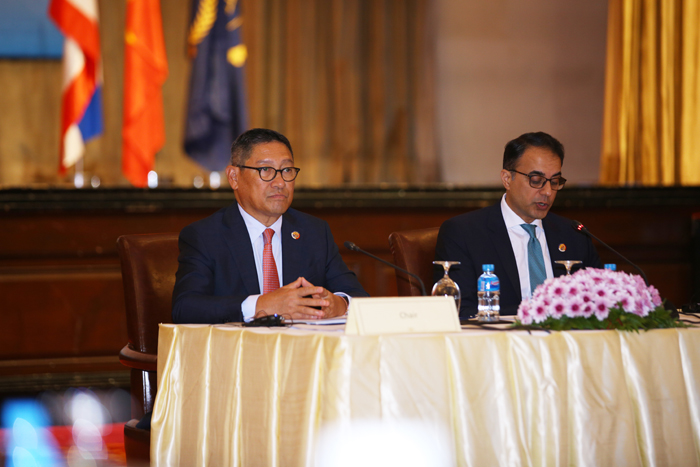
ADB Affirms Support for Future GMS Initiatives
The Asian Development Bank (ADB) remains committed to supporting the future initiatives of the Greater Mekong Subregion (GMS) Program. Mr. Ahmed M. Saeed, Vice President of ADB, reaffirmed ADB’s support in his speech at the recently-concluded 23rd GMS Ministerial Conference (MC-23). The MC-23 was Mr. Saeed’s first GMS meeting since his appointment as Vice President for ADB Operations in the Southeast Asia Department, the East Asia Department, and the Pacific Department in February 2019.
In his address, he highlighted several ADB-supported projects in the GMS that will significantly benefit the region’s economic development. ADB has approved financing support for 16 GMS projects worth $2.5 billion in transport infrastructure, agriculture, environment, and tourism in recent years. ADB financed 68% or $1.7 billion out of the total project amount, with governments and other development partners providing complementary financing. These projects include the Second GMS Tourism Infrastructure for Inclusive Growth Project in Cambodia, Lao People's Democratic Republic (DPR), and Viet Nam; GMS Corridor Towns Development Projects in Cambodia, Lao PDR, and Myanmar; and the Yunnan-Lincang Border Economic Cooperation Zone Development Project in the People’s Republic of China and Myanmar.
Mr. Saeed also highlighted the expansion of ADB’s support for ocean health and blue economy projects through the Action Plan for Healthy Oceans and Sustainable Blue Economies, which will support the health and sustainable development of the Mekong River basin.
“ADB has committed that we will deploy $5 billion towards these important goals over the next five years. This initiative is particularly relevant for the subregion, as the Mekong River has been identified as one of the ten rivers that transport 88%-95% of the global load of plastics into the seas,” said Mr. Saeed.
Mr. Saeed underscored ADB’s continued support in providing knowledge and capacity building across the subregion, which projects and government officials will benefit from.
He urged the GMS to face emerging global and regional challenges—such as the trade conflict, risk of technological and digital gaps emerging from increasing advancement of technologies, impact of climate change and natural disasters—with ever-increasing responsiveness.
“It is not a time for a ‘business as usual’ approach. Meaningfully addressing these profound challenges will require informed and cooperative action. The GMS Program must position itself to tackle these challenges head on, and identify new opportunities for advancement.”
